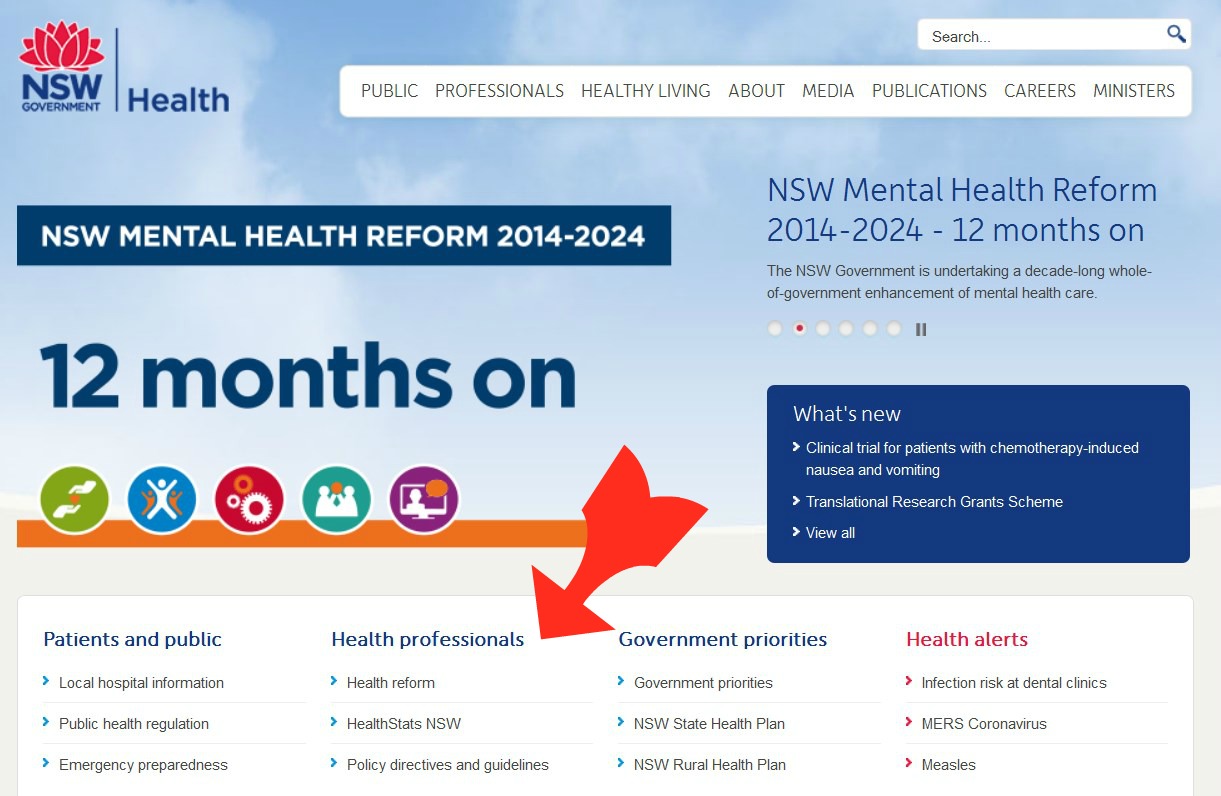You probably won't get a Limiter for policy documents in a database but you could use "policy document" as a search term, or search for ... policy OR policies. (Don't search for the term polic* because you might get mentions of police and policing.)
Another way to locate policy documents (and clinical guidelines) is to go directly to organisational websites, such as NSW Health, state Departments of Education, or the National Stroke Foundation. Most websites like this will have a section for Publications, or Resources, where you can browse or search for current documents. You might have to dig through information for consumers to find information for health professionals.

You can also use the Google Advanced Search techniques as mentioned in the box on Clinical Guidelines at left.
- If you are getting too many results, you can limit your search to where your search terms appear only in the title of the page. Use the box for terms appearing, to change from anywhere in the page to in the title of the page.
- Use a combination of boxes to create complex searches.
You can also use Google Basic Search to create complex searches, but you need to know the "syntax".
- Example: if you want to search for the terms communication [AND] stroke where they appear anywhere in the page, plus the phrase "policy document" but only where it appears in the title of the page, and you want results only from Australian websites, your "search string" would be:

This Australian website was previously called "Australian Policy Online". It describes itself as a "not-for-profit, open access knowledge and evidence base for you to discover, share and manage public policy and practice resources". It does include health-related material.
 The URL is easy to remember: apo.gov.au
The URL is easy to remember: apo.gov.au
